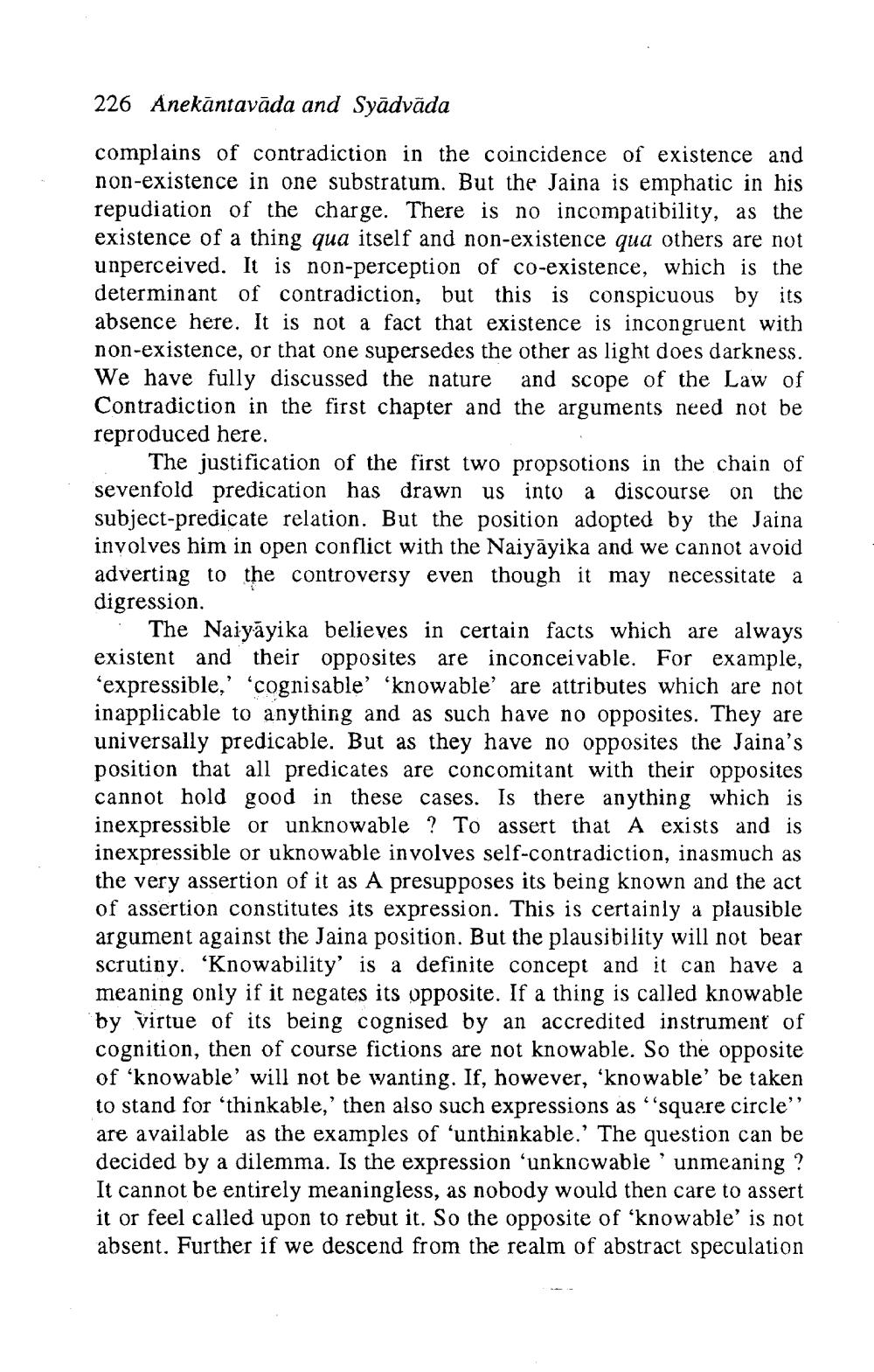________________
226 Anekāntavāda and Syādvāda
complains of contradiction in the coincidence of existence and non-existence in one substratum. But the Jaina is emphatic in his repudiation of the charge. There is no incompatibility, as the existence of a thing qua itself and non-existence qua others are not unperceived. It is non-perception of co-existence, which is the determinant of contradiction, but this is conspicuous by its absence here. It is not a fact that existence is incongruent with non-existence, or that one supersedes the other as light does darkness. We have fully discussed the nature and scope of the Law of Contradiction in the first chapter and the arguments need not be reproduced here.
The justification of the first two propsotions in the chain of sevenfold predication has drawn us into a discourse on the subject-predicate relation. But the position adopted by the Jaina involves him in open conflict with the Naiyāyika and we cannot avoid adverting to the controversy even though it may necessitate a digression.
The Naiyāyika believes in certain facts which are always existent and their opposites are inconceivable. For example, 'expressible,' 'cognisable'knowable' are attributes which are not inapplicable to anything and as such have no opposites. They are universally predicable. But as they have no opposites the Jaina's position that all predicates are concomitant with their opposites cannot hold good in these cases. Is there anything which is inexpressible or unknowable ? To assert that A exists and is inexpressible or uknowable involves self-contradiction, inasmuch as the very assertion of it as A presupposes its being known and the act of assertion constitutes its expression. This is certainly a plausible argument against the Jaina position. But the plausibility will not bear scrutiny. 'Knowability' is a definite concept and it can have a meaning only if it negates its opposite. If a thing is called knowable by virtue of its being cognised by an accredited instrument of cognition, then of course fictions are not knowable. So the opposite of 'knowable' will not be wanting. If, however, 'knowable' be taken to stand for thinkable,' then also such expressions as square circle" are available as the examples of 'unthinkable.' The question can be decided by a dilemma. Is the expression “unknowable 'unmeaning ? It cannot be entirely meaningless, as nobody would then care to assert it or feel called upon to rebut it. So the opposite of ‘knowable' is not absent. Further if we descend from the realm of abstract speculation




